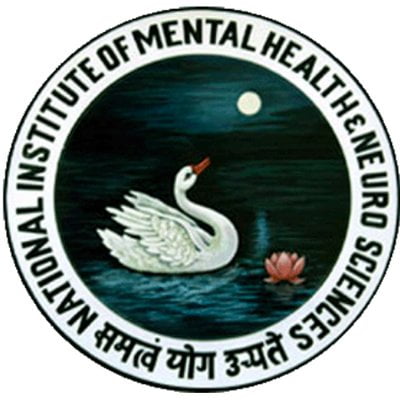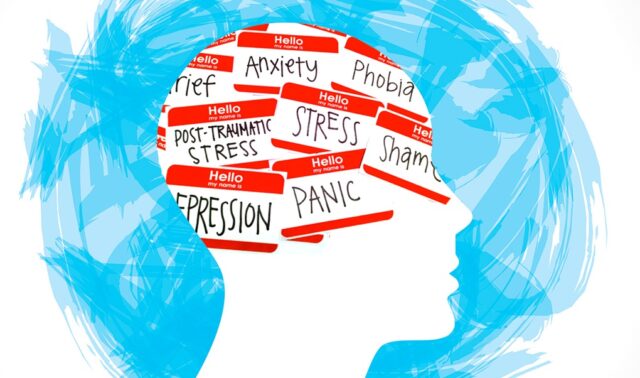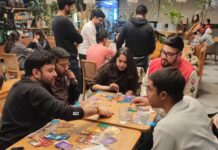From frequent recollections of crematoriums to nervousness about the deficiency of clinical supplies, trouble calls at the helpline run by the National Institute of Mental Health and Neuro Sciences (NIMHANS) in Bengaluru are now spiked by 40% over the most recent couple of weeks.
Moreover, of the absolute calls handled by the 24×7 helpline volunteers, those requiring basic consultancy (where individuals are counseled on psychological wellness and psychosocial issues) have practically multiplied.

What Is Happening?
“People are in distress. The calls for quality consultancy have gone up from 1,085 calls in March to 2,078 calls in April,” said K. Sekar, head of the Department of Psychosocial Care and Disaster Management at NIMHANS.
“Some people are in distress because they have gone through so much, such as a death or deaths in their family. Our consultants ask them to keep talking. They discuss how the imagery of the unfortunate events such as hospitals, ICUs or crematoriums keep coming back to them,” he added.
“Some people are in distress because they are feeling guilty of not being able to cremate, get the one final glance or bid a goodbye to their dear ones,” Sekar added.
When Did It All Start?
The NIMHANS helpline (080-4611 0007) was set up on 25 March 2020 when Prime Minister Narendra Modi declared the cross country lockdown.
From that point forward, the foundation has gotten over 4.48 lakh calls, generally by individuals with no set of experiences of clinical psychological instability.

What Helped Most In The Time Of Need?
Afterward, like The Indian Psychiatric Society, different emotional wellness foundations consolidated their helpline numbers with the one set up by NIMHANS.
As indicated by Sekar, the helpline experienced a flood in the number of calls this April with the staggering second rush of the pandemic and the fundamental lack of clinical supplies the nation over.
What Is The Ground Situation Like?
“Of late, the numbers of calls were plateauing. However, they started rising in April. We were receiving around 400 calls per day, which increased to 700 calls per day in April began,” he stated.
“The age group of these callers is generally around 45-55 years. However, in April, we have received calls from adolescents and young adults as well,” said Sekar.
A greater part of the calls handled by the psychological well-being expert was to do with the uneasiness over immunizations, the opening up of schools, and the validity of Covaxin and Covishield. Nonetheless, they additionally got a few calls from transient laborers who were restless about a plausible lockdown.
Also Read: As Someone Who Grew Up With A Mentally-Ill Person, Here’s Why I Think Mental Health Is Important
The essence of the data that NIMHANS intends to convey depends on, “There is no compelling reason to feel blame (of losing somebody or seeing somebody torn up pretty bad). Every one of these things is outside your ability to control. Whatever is occurring around us is a characteristic marvel because of the unusual circumstance around you,” Sekar said.

The foundation is currently chipping away at an arrangement to convey logical and positive messages to people in general.
NIMHANS has roped in 50 mental health institutes such as the Lokopriya Gopinath Bordoloi Regional Institute of Mental Health in Assam, Central Institute of Psychiatry, Ranchi, among others, and 450 mental health professionals in the country to address mental health issues in their regions. Soon, the helpline will be available in 13 languages.
Image Credit: Google Images
Sources: NIMHANS, Indian Express, PrintIndia
Find The Blogger: @saba_kaila0801
This post is tagged under: NIMHANS, Bangalore, Sekar, Psychology, Mental Health, Anxiety, Guilt, Depression, Anger, Frustration, Loss, Death, Despair, Emotions, Health, COVID-19, Corona Virus, Call, Telephone, Doctors, Psychologists, Helpline, Second Wave, Nurses, Clinical Therapy, Crematoriums, Delhi, Case rise, Spike, Mental Health during Lockdown, Trigger Warnings.
Other Recommendations:
Watch: Five Movies That Increase Awareness About Mental Health And Illness



































